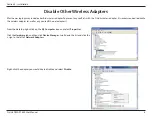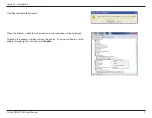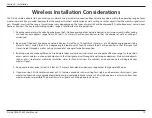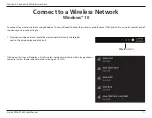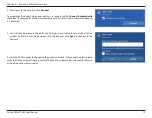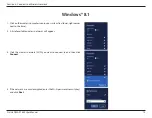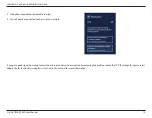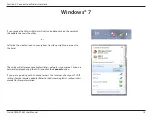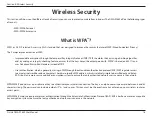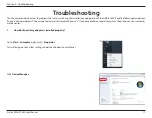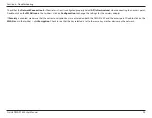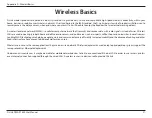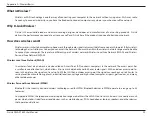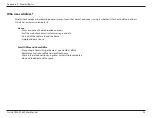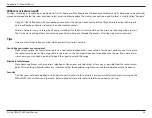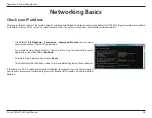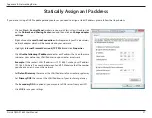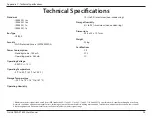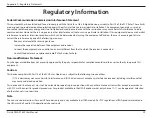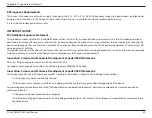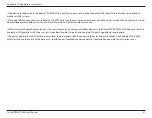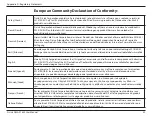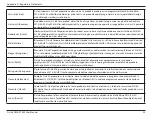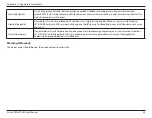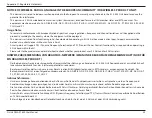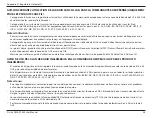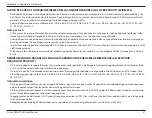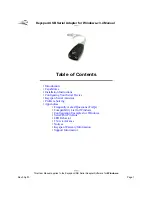
22
D-Link DWA-X1850 User Manual
Appendix A - Wireless Basics
What is Wireless?
Wireless or Wi-Fi technology is another way of connecting your computer to the network without using wires. Wi-Fi uses radio
frequency to connect wirelessly, so you have the freedom to connect computers anywhere in your home or office network.
Why D-Link Wireless
?
D-Link is the worldwide leader and award winning designer, developer, and manufacturer of networking products. D-Link
delivers the performance you need at a price you can afford. D-Link has all the products you need to build your network.
How does wireless work?
Wireless works similar to how cordless phone work, through radio signals to transmit data from one point A to point B. But wireless
technology has restrictions as to how you can access the network. You must be within the wireless network range area to be able
to connect your computer. There are two different types of wireless networks Wireless Local Area Network (WLAN), and Wireless
Personal Area Network (WPAN).
Wireless Local Area Network (WLAN)
In a wireless local area network, a device called an Access Point (AP) connects computers to the network. The access point has
a small antenna attached to it, which allows it to transmit data back and forth over radio signals. With an indoor access point as
seen in the picture, the signal can travel up to 300 feet. With an outdoor access point the signal can reach out up to 30 miles to
serve places like manufacturing plants, industrial locations, college and high school campuses, airports, golf courses, and many
other outdoor venues.
Wireless Personal Area Network (WPAN)
Bluetooth is the industry standard wireless technology used for WPAN. Bluetooth devices in WPAN operate in a range up to 30
feet away.
Compared to WLAN, the speed and wireless operation range are both less than WLAN, but in return it doesn’t use nearly as much
power which makes it ideal for personal devices, such as mobile phones, PDAs, headphones, laptops, speakers, and other devices
that operate on batteries.

